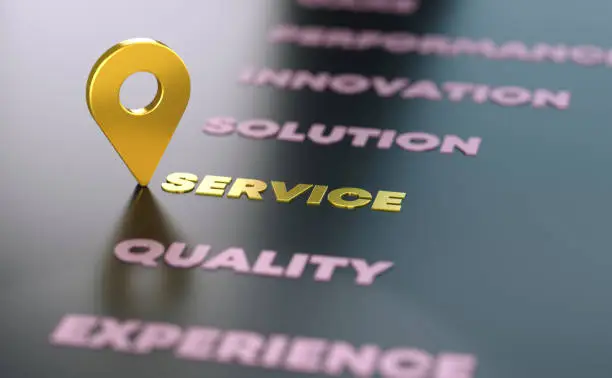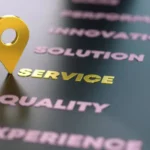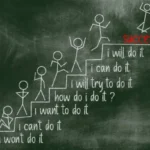Understanding the Basics
What Are Soft Skills?
Let’s kick it off with soft skills. These are the personal attributes and social abilities that determine how well you work with others. Think of things like communication, empathy, teamwork, and leadership. They’re intangible, meaning you can’t exactly take a test to prove you’ve got them—but trust me, they’re powerful.
What Are Hard Skills?
Hard skills, on the flip side, are the technical, teachable abilities you can measure. They’re the ones you learn in school, online courses, or through hands-on experience. Coding, accounting, data analysis, or graphic design—these are classic hard skills. You either know how to do them, or you don’t.
Why This Debate Matters
The Changing Nature of Work
Once upon a time, knowing how to operate a machine or crunch numbers was enough. But today? Jobs are evolving. With automation taking over many technical tasks, employers are starting to see human skills—like creativity and problem-solving—as irreplaceable.
How Employers Are Shifting Preferences
A LinkedIn report found that 92% of talent professionals believe soft skills matter just as much—if not more—than hard skills. Why? Because while a company can train someone to use software, it’s way harder to teach someone how to work well in a team.
Examples of Hard Skills
Tech and IT Skills
In today’s digital age, tech skills are 🔥. Employers want to see familiarity with tools like:
- Python, Java, or SQL
- Excel (yes, still!)
- Adobe Creative Suite
- SEO and digital marketing tools
Certifications and Degrees
Sometimes, it’s all about the paper. Certifications, diplomas, or degrees often validate your hard skills. For example:
- AWS or Microsoft certifications
- PMP for project managers
- Google Analytics Certification
Examples of Soft Skills
Communication and Teamwork
Being able to express your thoughts clearly and work in a group? That’s gold. Especially in hybrid or remote teams, clear communication reduces misunderstandings and boosts productivity.
Emotional Intelligence
This one’s becoming a real MVP. Emotional intelligence (EQ) is about understanding your emotions and others’—leading to better leadership, conflict resolution, and team morale.
How Employers Evaluate Skills
During the Hiring Process
Employers look for hard skills on your resume and soft skills during interviews. Résumés show what you can do; interviews reveal who you are.
On-the-Job Assessment
Sometimes, employers use trial periods or probation to evaluate both skill sets. You might be able to code—but can you handle stress or client feedback? That’s the test.
The Importance of Balance
Why You Need Both
Here’s the truth: Hard skills get your foot in the door. Soft skills help you climb the ladder. It’s like having a shiny car (hard skills) but no driving skills (soft skills). What’s the point?
Real-World Scenarios
Imagine a software developer who’s a genius coder but can’t communicate with teammates. 🚩 Or a salesperson who’s super friendly but doesn’t understand the product. 🚩 You get the idea.
Top Industries Prioritizing Hard Skills
Engineering and Tech
These sectors often lead with hard skills. If you’re in software development, data science, cybersecurity, or engineering, your technical toolkit needs to be sharp.
Healthcare and Finance
In medicine or finance, credentials are non-negotiable. Doctors, nurses, accountants, analysts—all must prove their knowledge through formal qualifications.
Top Industries Prioritizing Soft Skills
Customer Service and Sales
These fields are all about people. If you can’t listen actively, solve problems, or build rapport, you’re going to struggle in roles that deal with clients and customers.
Creative Industries
In fields like marketing, content creation, or entertainment, creativity, adaptability, and collaboration often outweigh strict technical know-how.
How to Highlight Hard Skills on Your Resume
Listing Certifications and Tools
Be specific. Instead of just saying “Proficient in Excel,” write “Built financial models using Excel PivotTables and macros.” Quantify wherever you can.
Showing Measurable Results
Include numbers! “Increased website traffic by 40% using SEO strategies” sounds way better than “Managed website SEO.”
How to Showcase Soft Skills in Interviews
Storytelling Techniques
Use the STAR method (Situation, Task, Action, Result) to walk the interviewer through real examples. Talk about a time you led a team, resolved a conflict, or adapted to change.
Behavioral Questions
When asked things like “Tell me about a time you had a disagreement with a coworker,” focus on how you listened, responded calmly, and found a solution.
Why Soft Skills Are Becoming More Valuable
The Rise of Remote Work
In distributed teams, soft skills are critical for collaboration. You can’t rely on hallway chats anymore—you need strong communication and time management.
Cross-Cultural Collaboration
Working across borders means understanding different communication styles, customs, and conflict resolutions. That’s where empathy and cultural intelligence shine.
Training and Developing Hard Skills
Courses and Workshops
Platforms like Coursera, edX, and Udemy offer courses on everything from coding to graphic design. Stack those credentials!
Learning by Doing
Practice makes perfect. Want to learn video editing? Download software and start cutting clips. Real-world projects teach you faster than theory ever could.
Improving Your Soft Skills
Practice and Feedback
Ask for feedback after presentations or team meetings. It might sting at first, but it’s the fastest way to grow.
Roleplaying and Coaching
Many organizations use roleplaying exercises to sharpen leadership and communication. Consider a mentor or coach to guide your development.
What Employers Say They Really Want
Survey Insights
According to a LinkedIn Global Talent Trends Report, the top soft skills employers crave are:
- Creativity
- Persuasion
- Collaboration
- Adaptability
- Emotional intelligence
Top Companies’ Preferences
Companies like Google and Apple have famously said they prioritize problem-solving, communication, and cultural fit—sometimes more than academic performance.
Future Trends in Hiring
AI and Automation’s Impact
As machines take over more repetitive tasks, the human touch becomes priceless. Think innovation, empathy, leadership.
Skills That Will Always Matter
Regardless of tech trends, integrity, curiosity, and the ability to learn fast will never go out of style. Those are your secret weapons.
Conclusion
So, what’s the verdict? It’s not soft skills vs. hard skills—it’s soft skills and hard skills. You need the right tools (hard skills) and the right mindset (soft skills) to thrive in today’s workplace.
Whether you’re fresh out of school or a seasoned pro, the best investment you can make is in your personal and professional development. Blend your skills, tell your story, and go get that job!
❓FAQs
1. Can soft skills be taught?
Yes! While they come more naturally to some, soft skills can be developed through practice, coaching, and feedback.
2. Are hard skills more important in tech careers?
Generally yes, but communication and teamwork are still crucial—especially when working in teams or with non-technical stakeholders.
3. What’s the easiest way to develop hard skills?
Online courses, certifications, and hands-on projects are great ways to build your technical abilities at your own pace.
4. How do I measure my soft skills progress?
Ask for regular feedback, do self-assessments, and reflect on how you handle real-life situations like teamwork, conflict, or leadership roles.
5. Do employers really care about soft skills?
Absolutely. In fact, many say they’ve passed on technically strong candidates who lacked emotional intelligence or teamwork abilities.





